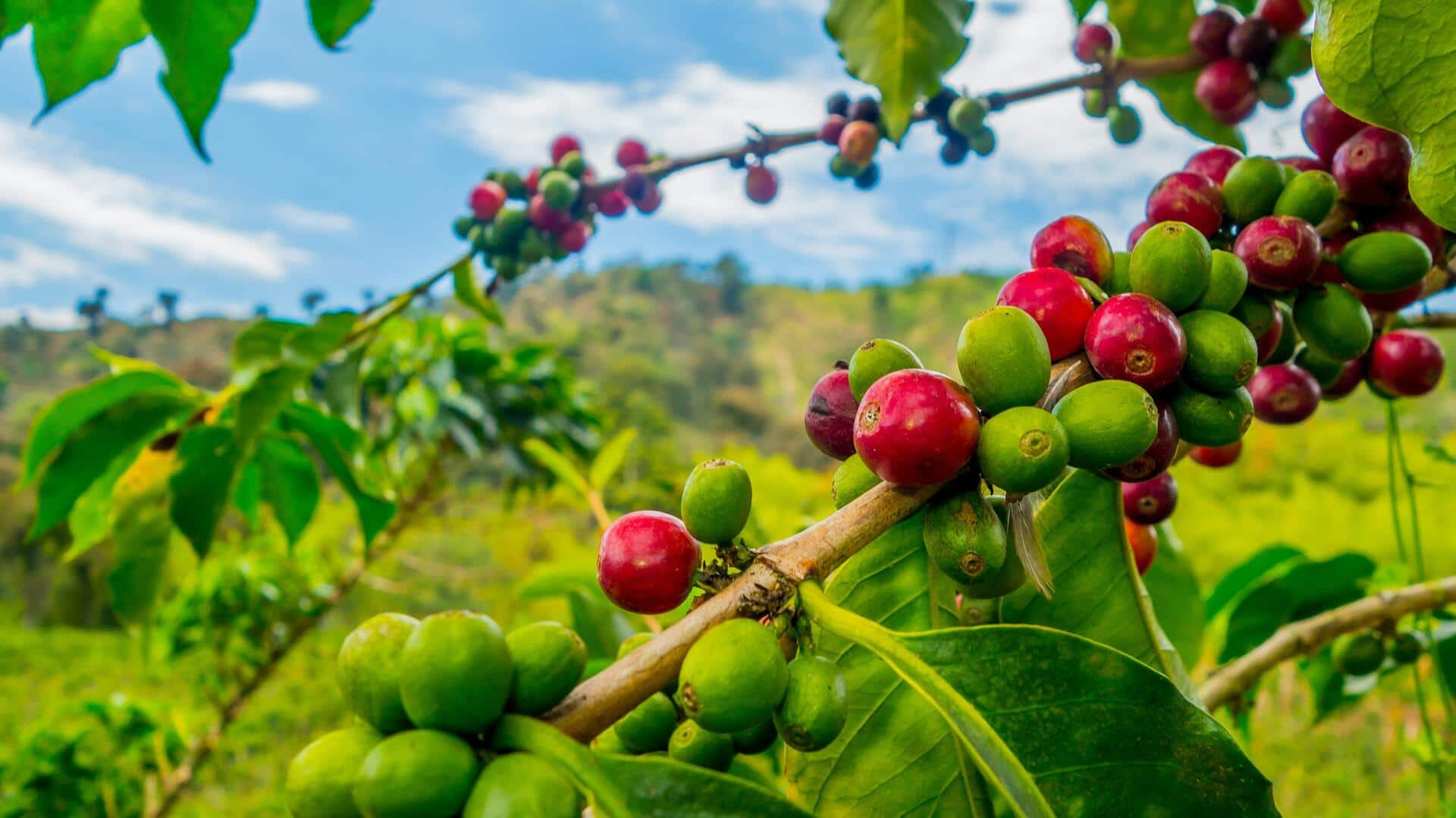
Exploring coffee plantations of Ethiopia's highlands
What's the story
Ethiopia, the legendary birthplace of coffee, beckons travelers to discover the beating heart of its rich coffee heritage. The highlands pulse with sprawling coffee plantations, vital arteries fueling not only Ethiopia's economy but the very essence of global coffee culture. This article provides a glimpse into the local coffee production process, and offers a unique opportunity to delve deep into Ethiopian culture by experiencing it firsthand.
Origins
Journey to the birthplace of coffee
The story of coffee starts with a ninth-century goat herder named Kaldi, who observed the energizing effects of coffee beans on his goats. Today, regions like Sidamo, Yirgacheffe, and Harrar are renowned for their high-quality Arabica beans. By visiting these areas, travelers can delve into the centuries-old traditions of coffee cultivation and processing, passed down through generations.
Culture
A taste of local life
In Ethiopia, coffee isn't just a crop—it's a way of life. The Ethiopian coffee ceremony, central to daily existence, highlights this deep connection. It involves roasting green beans over open flame, hand-grinding them, and brewing in a traditional jebena. Participating in this ritual provides a glimpse into the communal heartbeat that coffee cultivates within Ethiopian society.
Process
From bean to cup
Traveling to Ethiopia's highlands, numerous plantations welcome visitors to experience the coffee process firsthand through guided tours. Guests can stroll through fields, witness workers selecting the ripest beans, and observe the meticulous care taken in drying and sorting. Tours culminate in tastings, allowing visitors to sample various varietals while gaining an appreciation for the distinct flavors characteristic of Ethiopia's regions.
Sustainability
Sustainable practices and eco-tourism
Ethiopia faces significant challenges, including climate change, which threaten its iconic coffee production. However, many plantations are adopting sustainable practices, such as shade-grown cultivation. This method improves coffee quality while strengthening local ecosystems. Eco-tourism lovers can find opportunities to contribute to conservation efforts in the industry and understand how their responsible tourism can support these sustainable practices.
Planning
Tips for travelers
The best time to visit is between October and January when you can witness the harvest. Facilities in rural areas are basic, so pack essentials! Bring water bottles, wear comfortable shoes, and carry small denominations of the local currency (approximately 52 Ethiopian Birr) for buying crafts, drinks, etc. Hiring local guides not only enriches your experience but also contributes to the local economy.